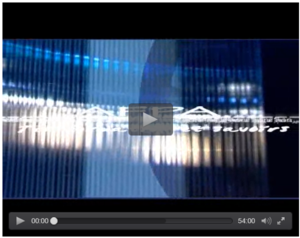Hub: Former aux situations de travail et en situation de travail (F.A.E.ST)
• Lucie Petit • update : 01/12/2021
What does this hub? What is occupational didactics?
The hub Former aux situations de travail ; Former en situation de travail (F.A.E.ST) aims to build a bank of case studies for training in a professional didactic approach (Pastré, 2011). This hub will display :
- A non-exhaustive inventory of reference material in the field of occupational didactics (the analysis of activity with a view to developing skills), and on case study and in-work training.
- Case studies based on an analysis of the activity of different professions, either developed from existing data from experts (teacher-researchers, consultants, training engineers, etc.) or created from data specially collected by the cluster (films, interviews, documentation, etc.);
- Video clips of specialists (methodological approach, engineering issues, skills, explanation of experience, etc.);
This hub wishes to be an online tool for the training of students, but also for professionals in the field of continuing education, and teacher-researchers wishing to address occupational didactics in their courses.
About occupational didactics
Occupational didactics is a specific didactics rooted in the field of continuing occupational training, which is concerned with what people do in real work and/or learning situations. Some define it as a didactics of activity, as it is interested in « […] processus de transmission et d’appropriation des connaissances, en vue de les améliorer. » (Vergnaud, 1992, p. 19): in occupational didactics, knowledge is specific to a professional activity.
Occupational didactics therefore proposes to analyse real work situations with a view to developing skills both in training and in the workplace. In so doing, we seek to understand the essential determinants of work situations with a view to their transposition in the creation of training resources (adapted work situation, case study, simulator, problem simulator, organisation of work-study, assessment or positioning tool, etc.).
For almost fifteen years, professional didactics has been taught in the SEFA department mainly to Master's level students in adult education, often with the help of rather limited resources, usually derived from students' work. This teaching in the field of adult education aims to promote engineering to « sortir du ʺformer des gens qui n’existent pas à un travail qui n’existe pasʺ ! » (Jobert, 2013, p. 39). Moreover, the law of 5 September 2018 on vocational training recognises the action of training in a work situation (AFEST), and to define it it was largely inspired by occupational didactics (decree D. 6313-3-2), which makes this demanding teaching topical.
To find out more, watch this AFPA web TV programme produced in 2007, La didactique professionnelle : http://pros.webtv.afpa.fr/tfs/accueil/1495/res:La-didactique-professionnelle
References :
Pastré, P. (2011). La didactique professionnelle. Approche anthropologique du développement chez les adultes. Puf.
Vergnaud, G. (1992). Approches didactiques en formation d'adultes. Éducation permanente, 111, p. 19-31.
Jobert, G. (2013). Formateur d’adultes : un acteur de développement. Nouvelle revue de psychologie. 15 (1), 31-44.



